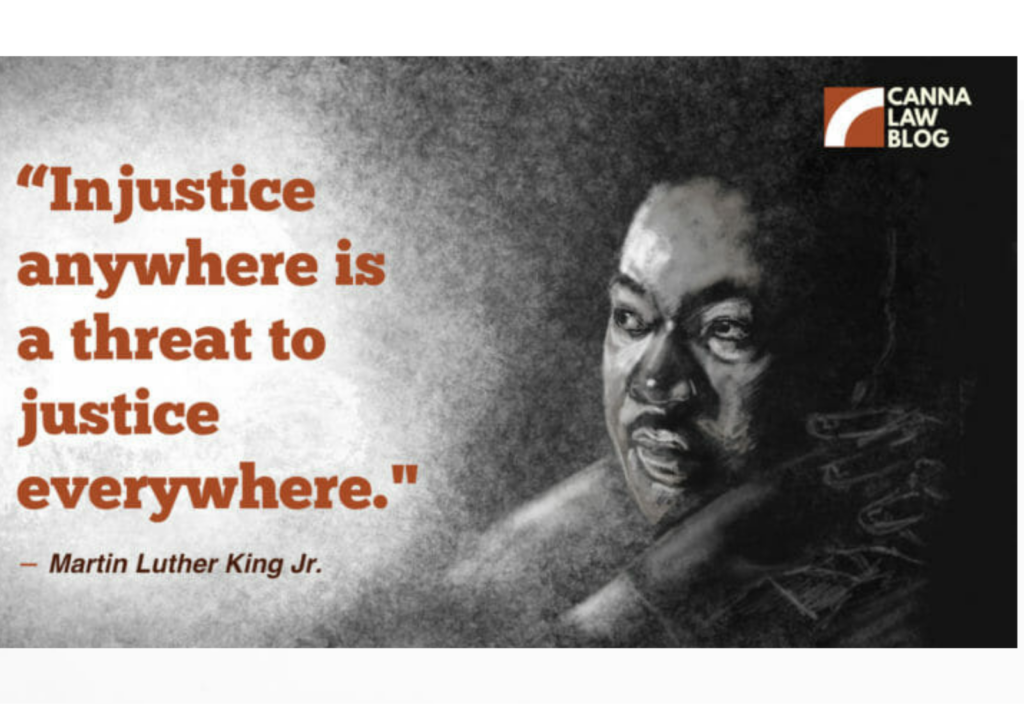Happy MLK Day!
For our international readers, Martin Luther King, Jr. Day is a federal U.S. holiday marking the birthday of its eponymous civil rights hero. Dr. King was the chief spokesperson for nonviolent activism in the Civil Rights Movement, which successfully protested racial discrimination in federal and state law. Dr. King was assassinated in 1968, four years after the passage of one of the great U.S. laws of the 20th century, the Civil Rights Act of 1964. His death also came two years prior to one of the 20th century’s most controversial and insidious laws, the Controlled Substances Act of 1970 (CSA).
The CSA is a half-century old this year, and it’s looking much worse for the wear. We have commemorated MLK Day each of the past few years on this blog by examining the status of cannabis and civil rights. In short, things were bad, are bad, and are not improving quickly enough (if at all). Marijuana arrests continue to track upward despite more states legalizing distribution and sale of the plant and despite broad non-enforcement of federal law.
We did see promising expungement efforts around the country last year, from San Francisco to Illinois to New York. But that is not enough. The War on Drugs persists in insidious ways, particularly with respect to black and Latino Americans. This includes everything from disproportionate incarceration to disenfranchisement under “progressive” new laws, like the 2018 Farm Bill.
In each of 2018 and 2019 we observed that Dr. King died 50 years ago, but his legacy continues to resonate and expand. The year 2020 will be politically momentous: let’s hope that state and federal governments finally turn the corner. Not only should cannabis be decriminalized once and for all, but the leaders among us should strive to make amends for a half-century of failures.
























